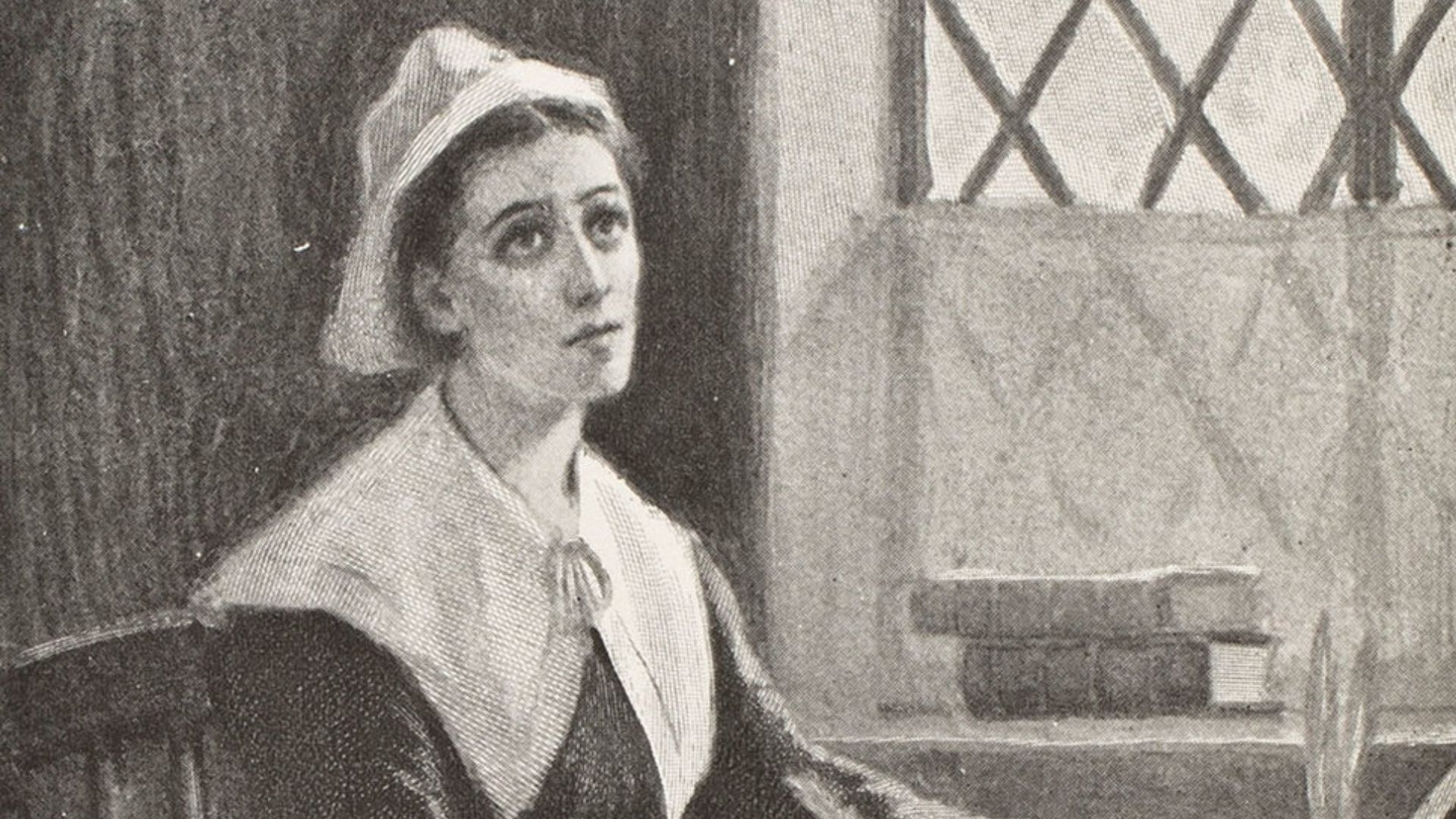Of The Four Ages Of Man Poem by Anne Bradstreet
Of The Four Ages Of Man
Lo, now four other act upon the stage,
Childhood and Youth, the Many and Old age:
The first son unto phlegm, grandchild to water,
Unstable, supple, cold and moist's his nature
The second, frolic, claims his pedigree
From blood and air, for hot and moist is he.
The third of fire and choler is compos'd,
Vindicative and quarrelsome dispos'd.
The last of earth and heavy melancholy,
Solid, hating all lightness and all folly.
Childhood was cloth'd in white and green to show
His spring was intermixed with some snow:
Upon his head nature a garland set
Of Primrose, Daisy and the Violet.
Such cold mean flowers the spring puts forth betime,
Before the sun hath thoroughly heat the clime.
His hobby striding did not ride but run,
And in his hand an hour-glass new begun,
In danger every moment of a fall,
And when 't is broke then ends his life and all:
But if he hold till it have run its last,
Then may he live out threescore years or past.
Next Youth came up in gorgeous attire
(As that fond age doth most of all desire),
His suit of crimson and his scarf of green,
His pride in's countenance was quickly seen;
Garland of roses, pinks and gillyflowers
Seemed on's head to grow bedew'd with showers.
His face as fresh as is Aurora fair,
When blushing she first 'gins to light the air.
No wooden horse, but one of mettle tried,
He seems to fly or swim, and not to ride.
Then prancing on the stage, about he wheels,
But as he went death waited at his heels,
The next came up in a much graver sort,
As one that cared for a good report,
His sword by's side, and choler in his eyes,
But neither us'd as yet, for he was wise;
Of Autumn's fruits a basket on his arm,
His golden god in's purse, which was his charm.
And last of all to act upon this stage
Leaning upon his staff came up Old Age,
Under his arm a sheaf of wheat he bore,
An harvest of the best, what needs he more?
In's other hand a glass ev'n almost run,
Thus writ about: "This out, then am I done."
I like this poem.It's not my favorite, but a nice poem.If you love poems, come see mine.you will love 'life'.
The first son unto phlegm, grandchild to water, Unstable, supple, cold and moist's his nature The second, frolic, claims his pedigree From blood and air, for hot and moist is he. The language depicting belief in the four humours and images discussed of a bygone era tell well Anne Bradstreet imparts the spirit of her age
It is another version of seven ages of men by William Shakespeare in his play, AS YOU LIKE IT!
Ann Bradstreet lived in an age when few got old. She describes the high infant mortality - the child running about with an hourglass which dropped will end his life; even the Youth has death at his heels; the middle-aged are more assured of their full lifespan so long as they are wise enough to keep their swords sheathed! ; and then Old Age happy to die having fulfilled his life. An excellent poem.
If the colonies had had a poet laureate, it should have been she.
I enjoyed this poem full of laughter and very witty. The poets heart and soul was poured into this write. Enjoyed it.
Very good! Very witty. I really enjoyed it. Why are people not voting this a proper number? Definitely not a five. Come on!
This poem has not been translated into any other language yet.
I would like to translate this poem
Here, Anne Bradstreet has described the four stages of man in a vivid, reflective manner. She has rightly captured the picture. The last lines really tell the story in a very symbolic manner. The wine- the spirit of life- when it runs out, man breathes his last. What a manner to finish off the poem! The poem reminds me of the verses of Adi Sankara - 'Baalasthaval creeda saktha...' meaning 'childhood is spent in play, youthful days in the chase of woman and wine, old age in wreckless thoughts and where was the time to reflect on god?